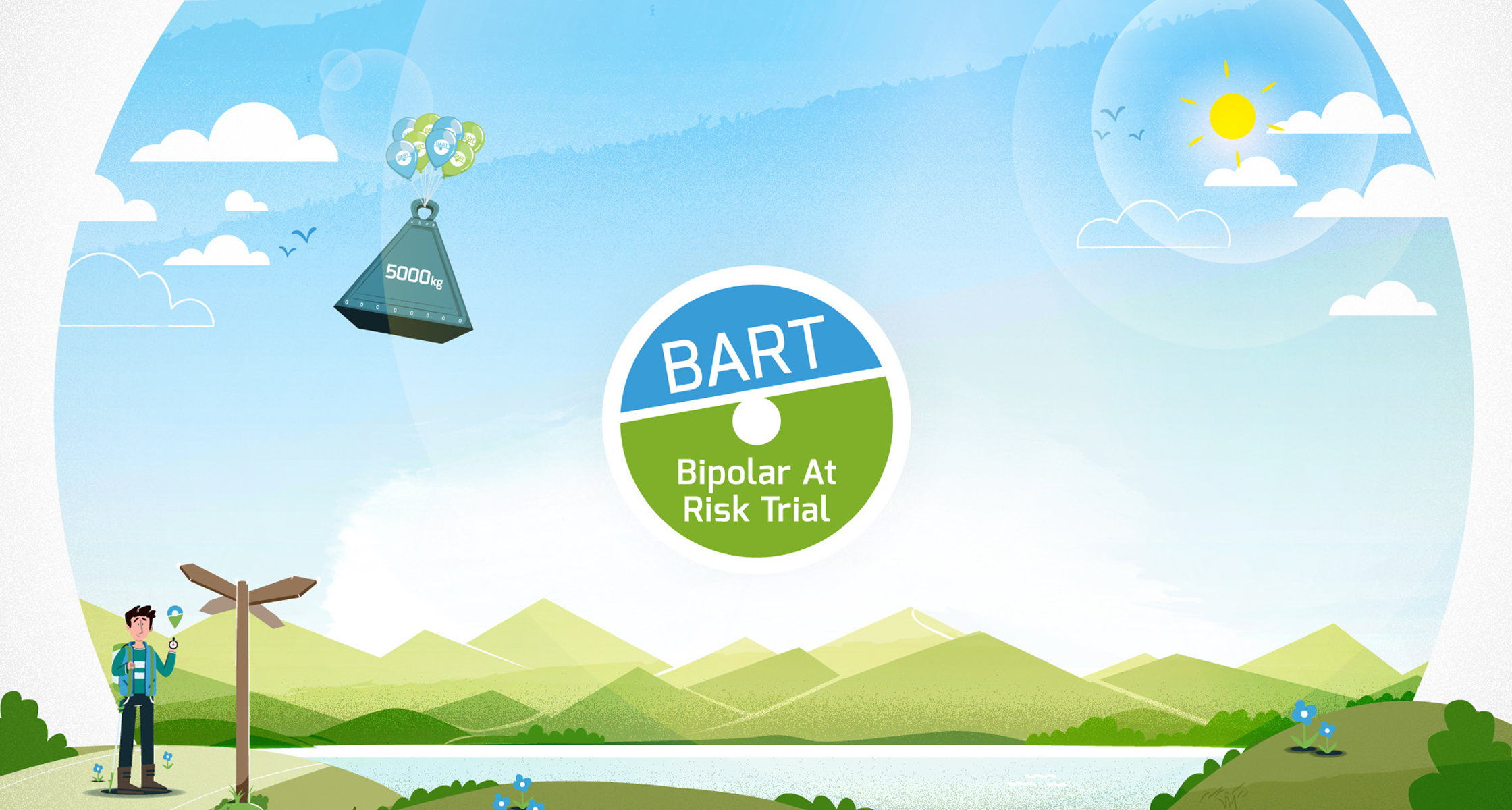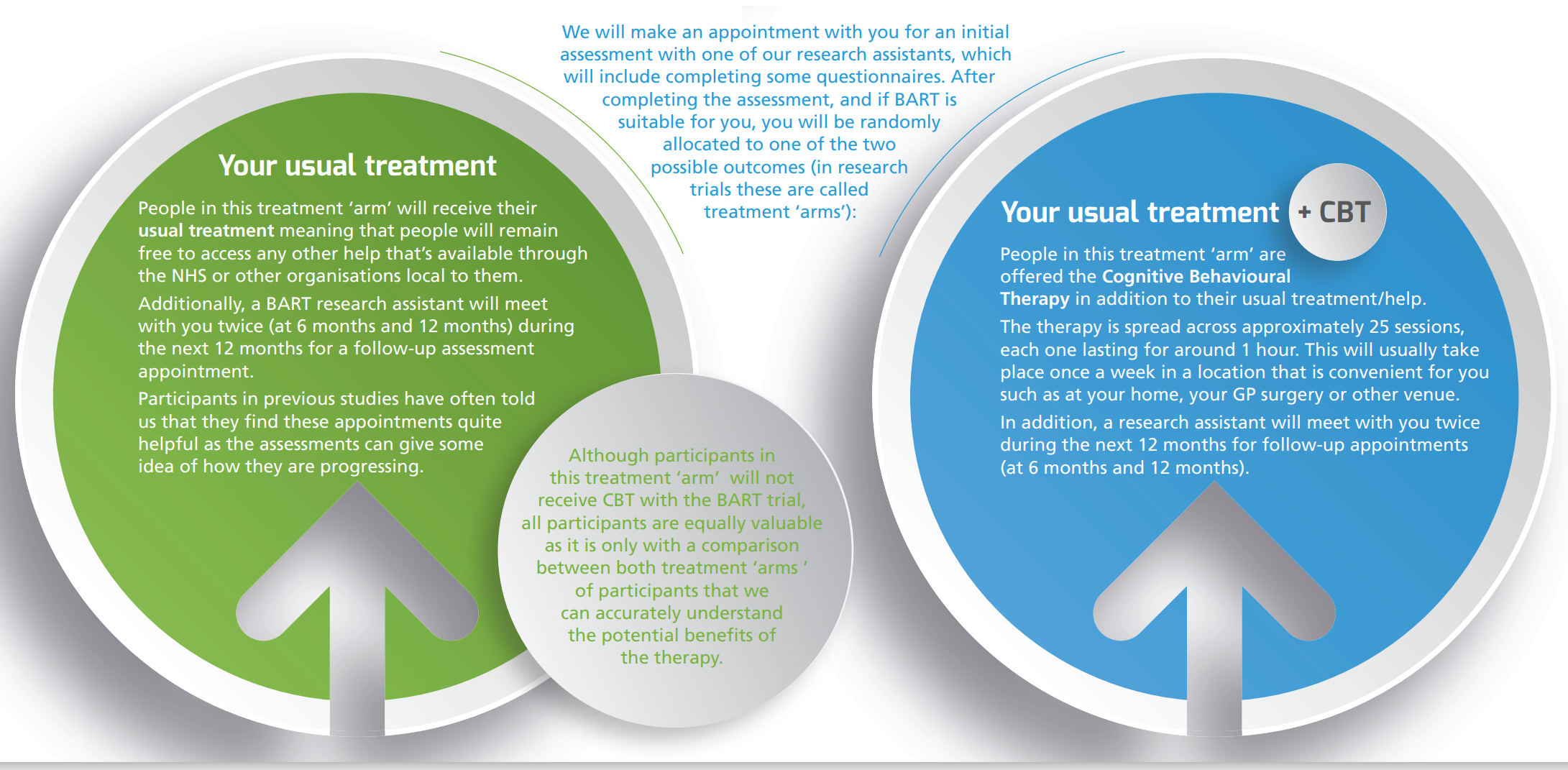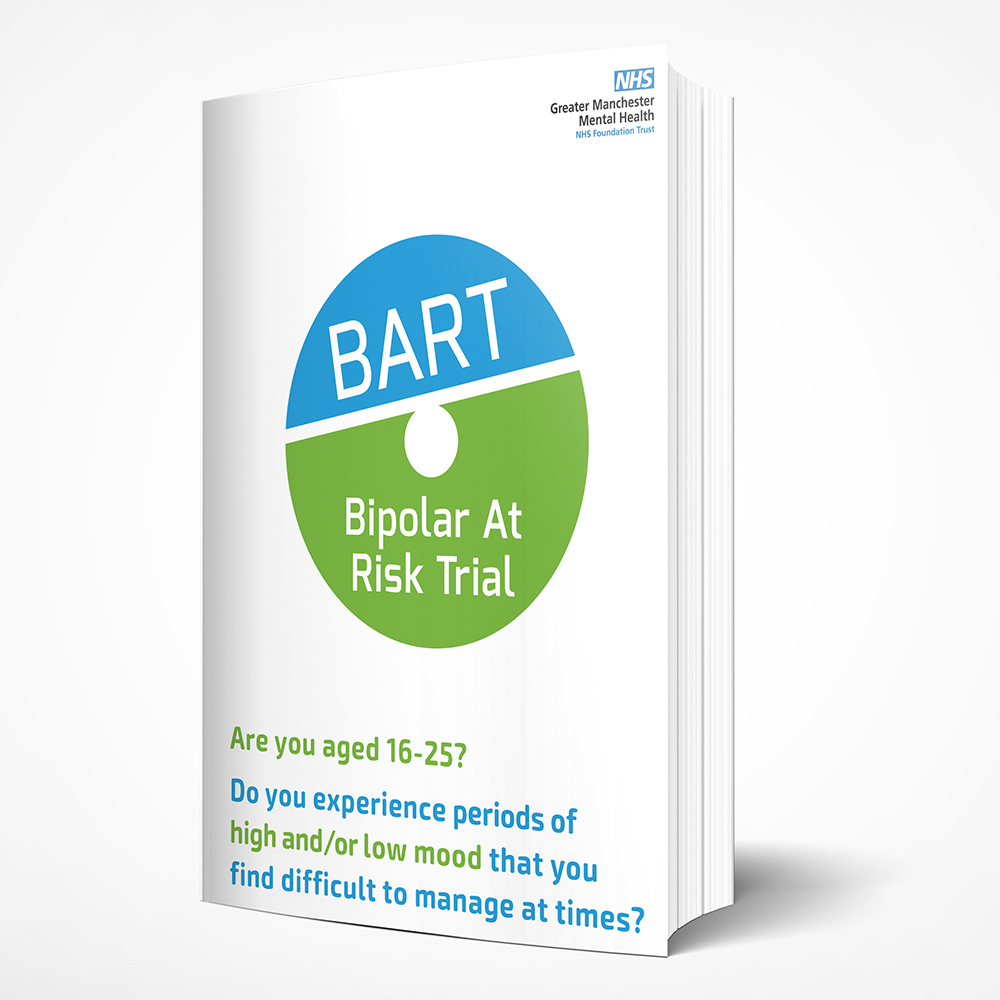BART II

Bipolar at Risk Trial II (BART II)
Led by: Professor Sophie Parker
What is BART II?
BART II is a new multi-site trial that commenced in April 2022. The trial will take place in five different locations across the UK, including Manchester, Sheffield, Norfolk & Suffolk, Lancashire, and Birmingham.
This project (NIHR132622) is funded by The Efficacy and Mechanism Evaluation (EME) Programme, a joint venture between The Medical Research Council (MRC) and The National Institute for Health and Care Research (NIHR).
What is the aim of BART II?
The main objective of BART II is to evaluate the effectiveness of Cognitive Behaviour Therapy (CBT) for individuals who meet the criteria for being at risk of developing bipolar disorder, referred to as CBT for Bipolar At Risk (CBTBAR). The development of CBTBAR was informed by the results of the previous Research for Patient Benefit (RfPB, NIHR) trial, called the Bipolar At Risk Trial (BART), which was conducted from 2015 to 2018 in GMMH.
The BART trial provided valuable insights into the feasibility of identifying individuals who are at risk of developing bipolar disorder and keeping them engaged in research for a period of up to one year. The results of the trial showed that it was possible to provide beneficial outcomes for those who received the CBTBAR intervention. The BART II trial aims to build upon these findings by further investigating the efficacy of the CBTBAR intervention on a larger scale.
What have people said about their experience of the Bipolar At Risk work we have conducted?
During the BART trial, several research participants shared their experiences of participating in the study. Some described their experience of receiving the Cognitive Behaviour Therapy (CBTBAR) intervention as like learning to ride a bike with stabilizers. One participant expressed that “it’s just the best thing I ever did ever.”
These positive experiences are a testament to the impact that the CBT intervention can have on individuals who are at risk of developing bipolar disorder. Professor Sophie Parker, who served as the chief investigator for both BART and BART II, commented on the positive outcomes of the BART trial at its conclusion. Professor Parker’s involvement in both trials highlights the continued commitment to investigating the efficacy of the CBT intervention and improving the lives of those who are at risk of developing bipolar disorder.
“Our research group believes passionately that offering preventative approaches will help us to improve upon and develop appropriate services for young people who are often not catered for within the NHS. We have been pivotal in the development of this approach for young people at high risk of developing psychosis within the UK. Through this work we were coming into contact with individuals who also reported significant concerns about their mood and were attempting to access help with very little success. When we were awarded the Research for Patient Benefit grant we were thrilled to bring this approach to young people with distressing mood swings. The BART trial has received a great deal of interest from service users and from staff in our own footprint as well as staff nationally and internationally. It appears to have real relevance and is of true value to the NHS patients it is trying to serve and their families. We are really looking forward to using the positive findings from this trial to gain larger funding to test this approach across a number of centres within the UK to explore how effective this approach is for young people.”
What is involved?
The BART II trial is aiming to recruit 338 participants across the five participating sites, with recruitment starting in February 2023. The participants will be randomly assigned to one of two possible outcomes: those who will receive treatment as usual alone, or those who will receive treatment as usual plus the CBT for Bipolar At Risk (CBTBAR) intervention.
The CBTBAR intervention will be delivered individually by experienced trial therapists and will last for up to 26 sessions (over a 6-month time period). After receiving the intervention, all participants will be followed up by a research assistant at 4, 6, and 12 months to assess their progress. As a token of appreciation, participants will receive £20 at their initial appointment and each of these follow-up appointments.
This trial provides an opportunity for individuals who meet the Bipolar At Risk criteria to receive high quality treatment and support, and for researchers to gain a better understanding of the effectiveness of the unique intervention, CBTBAR. The BART II trial aims to improve the lives of those who are at higher risk of developing bipolar disorder and contribute to the advancement of knowledge in the field.

What additional work are we undertaking in BART II?
In addition to the BART II trial, the research team is also working with a Lived Experience Advisory Group BART II PPI (Patient and Public Involvement) group to create an animation video that explains the purpose and details of the trial. The animation is based on the feedback and experiences shared by participants during the previous BART trial.
At the end of the BART trial, a feedback day was held for participants at The Royal Exchange Theatre in Manchester. During this event, illustrations were created based on the conversations that took place between the participants and the research team. These illustrations will serve as the foundation for the animation video, which will provide a visual and engaging explanation of the BART II trial and what it entails for participants.
The animation video is a key component of the BART II trial as it will help to increase awareness and understanding of the trial and its objectives. By using illustrations and animations, the research team aims to make the trial more accessible and understandable for participants and other stakeholders.
What are we doing to make sure the BART II trial is as inclusive as it can be?
We are working with a group of young people to help tackle the prominent issue of making our research more inclusive. This group is made up of a diverse group of people from UK ethnic minority backgrounds.
This PPI Group is bringing their ideas of how we can develop better processes to ensure recruitment into our research is more inclusive. This will include an animation, outreach work and valuable information for potential participants in terms of what might be important to them.
We are excited to see what this new group will develop in their work with us and what impact this will have on ensuring the BART II participants are as diverse as the communities we are serving.
Follow us on our journey as we begin to set up this exciting new trial!
More information:
If you are interested in finding out more, please contact the research team…
Professor Sophie Parker – Chief Investigator
Sophie.Parker@gmmh.nhs.uk
Disclaimer: The views expressed in any publications regarding BART II are solely those of the author(s) and do not reflect the official stance of the MRC, NIHR, or The Department of Health and Social Care.
The trial and its results will be closely monitored and evaluated by these organisations to ensure the validity and reliability of the findings.
Download Resources Here...




